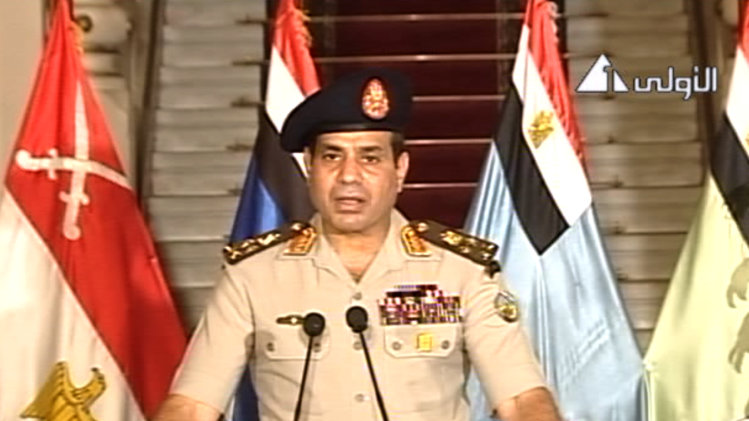
News and Information about Africa issues and problems, Human Rights Abuses, Unpunished War Crimes and Crimes Against Humanity in Africa, UK's Policy in Africa and UK-Africa Politics and Foreign Relations, e.g. UK's Proxy Wars in Africa: The Case of Rwanda and D.R. Congo.
Pages
- Home
- The Root causes of the Rwandan Genocide
- Main reasons why Rwandan refugee are not yet read...
- What Really Happened in Rwanda?
- The salient features of Paul Kagame's dictatorshi...
- Rwanda's New Road Map
- Rwanda's Untold Story Documentary
- UK Government discrimination against Rwandan Hutu...
- Kagame’s Hutu refugee massacres and human rights violations in Rwanda and DRC
- Rwanda's Kibeaho Massacre
- Who is Who in supporting Kagame's regime ?
- Extrait Chronique d'un génocide (La partie occultée): 1994 - 1996 les massacres commis par le FPR
- President Obama's Visit And Africa's Second Uhuru
- Open Letter 2 to Andrew Mitchell MP ( Sutton Coldf...
- Rwanda genocide anniversary: Harrowing photos of 1994's 100-day mass slaughter
The dictator Kagame at UN

Dictators like Kagame who have changed their national constitutions to remain indefinitely on power should not be involved in UN high level and global activities including chairing UN meetings
Why has the UN ignored its own report about the massacres of Hutu refugees in DRC ?
The UN has ignored its own reports, NGOs and media reports about the massacres of hundreds of thousands of Hutu in DRC Congo (estimated to be more than 400,000) by Kagame when he attacked Hutu refugee camps in Eastern DRC in 1996. This barbaric killings and human rights violations were perpetrated by Kagame’s RPF with the approval of UK and USA and with sympathetic understanding and knowledge of UNHCR and international NGOs which were operating in the refugees camps. According to the UN, NGO and media reports between 1993 and 2003 women and girls were raped. Men slaughtered. Refugees killed with machetes and sticks. The attacks of refugees also prevented humanitarian organisations to help many other refugees and were forced to die from cholera and other diseases. Other refugees who tried to return to Rwanda where killed on their way by RFI and did not reach their homes. No media, no UNHCR, no NGO were there to witness these massacres. When Kagame plans to kill, he makes sure no NGO and no media are prevent. Kagame always kills at night.
4 Jul 2013
Egypt's army ousts Morsi, who calls it a 'coup'

-“The enemies of Freedom do not argue ; they shout and they shoot.”
The principal key root causes that lead to the Rwandan genocide of 1994 that affected all Rwandan ethnic groups were:
1)The majority Hutu community’s fear of the return of the discriminatory monarchy system that was practiced by the minority Tutsi community against the enslaved majority Hutu community for about 500 years
2)The Hutu community’s fear of Kagame’s guerrilla that committed massacres in the North of the country and other parts of the countries including assassinations of Rwandan politicians.
3) The Rwandan people felt abandoned by the international community ( who was believed to support Kagame’s guerrilla) and then decided to defend themselves with whatever means they had against the advance of Kagame’ guerrilla supported by Ugandan, Tanzanian and Ethiopian armies and other Western powers.
-“The enemies of Freedom do not argue ; they shout and they shoot.”
-“The hate of men will pass, and dictators die, and the power they took from the people will return to the people. And so long as men die, liberty will never perish.”
-“The price good men pay for indifference to public affairs is to be ruled by evil men.”
-“I have loved justice and hated iniquity: therefore I die in exile.”
The Rwanda war of 1990-1994 had multiple dimensions.
The Rwanda war of 1990-1994 had multiple dimensions. Among Kagame’s rebels who were fighting against the Rwandan government, there were foreigners, mainly Ugandan fighters who were hired to kill and rape innocent Rwandan people in Rwanda and refugees in DRC.
READ MORE RECENT NEWS AND OPINIONS
-
►
2020
(114)
- ► December 2020 (6)
- ► November 2020 (11)
- ► October 2020 (5)
- ► September 2020 (21)
- ► August 2020 (4)
- ► April 2020 (2)
- ► February 2020 (3)
- ► January 2020 (2)
-
►
2018
(5)
- ► April 2018 (1)
- ► March 2018 (2)
- ► February 2018 (1)
- ► January 2018 (1)
-
►
2017
(5)
- ► March 2017 (1)
- ► February 2017 (1)
- ► January 2017 (3)
-
►
2016
(151)
- ► October 2016 (2)
- ► September 2016 (1)
- ► August 2016 (6)
- ► April 2016 (14)
- ► March 2016 (10)
- ► February 2016 (33)
- ► January 2016 (35)
-
►
2015
(688)
- ► December 2015 (16)
- ► November 2015 (37)
- ► October 2015 (35)
- ► September 2015 (25)
- ► August 2015 (88)
- ► April 2015 (33)
- ► March 2015 (26)
- ► February 2015 (18)
- ► January 2015 (58)
-
►
2014
(1330)
- ► December 2014 (111)
- ► November 2014 (100)
- ► October 2014 (82)
- ► September 2014 (19)
- ► August 2014 (58)
- ► April 2014 (256)
- ► March 2014 (183)
- ► February 2014 (52)
- ► January 2014 (82)
-
▼
2013
(803)
- ► December 2013 (59)
- ► November 2013 (49)
- ► October 2013 (79)
- ► September 2013 (45)
- ► August 2013 (62)
-
▼
July 2013
(65)
- Rwanda : Ingabire detailed errors of the High Cour...
- We ask the government of Rwanda to stop threatenin...
- President and Chelsea Clinton Travel to Malawi, Za...
- United Nations gives Rwanda $400 million to fight ...
- IMPRISONMENT OF VICTOIRE INGABIRE VIOLATES RWANDA'...
- Rwanda: A dead American officer used to discredit ...
- Human Rights Watch exposes M23 rebel group’s notor...
- Rwanda has also been a country of increasing hunger
- Rwanda: The Cult of Prime Minister and Rucagu shou...
- U.S. needs to push for sanctions on Rwanda to help...
- Dr.Theogene RUDASINGWA: "Kagame is a double faced ...
- Catholic priest arrested in Rwanda for insulting P...
- RWANDAN OPPOSITION DEMANDS UNEQUIVOCAL STAND ON RW...
- U.S. needs to push for sanctions on Rwanda to help...
- Congolese to UN: Let our army advance against Rwan...
- Rwanda 'still arming Congo rebels', in defiance of...
- RDC : U.S. says Rwanda aids Congo rebels
- U.S. tells Rwanda to immediately end support for M...
- Rwanda: The detention of Mrs. Victoire Ingabire vi...
- DR Congo: M23 Rebels Kill, Rape Civilians | HRW
- Reasons Not to Be Victoire Ingabire’s Supporter
- Congolese protest that the UN is stopping their ar...
- Tanzanian Jakaya Kikwete’s Negotiation Proposal: Y...
- Uganda: Govt open to peace talks with ADF
- U.N. asks Rwanda for proof of links between peacek...
- Fw: *DHR* documents à diffuser [2 pièces jointes]
- The FDLR speaks out
- The war rages on….
- Kigali says two mortar bombs fired into Rwanda fro...
- DR Congo says 130 dead in army-rebel clashes
- Fw: Italy: Minister Likened To Orangutan
- Fw: [AfricaWatch] Italian senator says black mi...
- Being Minister in Rwanda is a Kiss of Death
- Tanzania shocked by Darfur killings
- UN International Brigade of Intervention for Easte...
- SADC Asks the US for Inclusion in DR Congo Peace T...
- No consensus on implementation of cessation clause...
- You Will be Whipped Like a Small Boy, Tanzania Gov...
- Tanzania replies to Kagame’s insults & threats
- Patrick Karegeya : «Nous savons d’où les missiles ...
- Canada: Very important radio report re Rwanda
- Fw: [uRwanda_rwacu] No Consensus On Implementation...
- FDLR Splinter Group Commander Killed by Rwandan De...
- Invigorated by Recent Successes Against Rwandan De...
- M23=Armée Rwandaise, confirme Patrick Karegeya
- [Audio] Kayumba accuses Kagame==RFI-English
- Rwanda: Africa's Problem Child
- Labour and the Conservatives have both been too so...
- Rwanda: The Supreme Court hearings of the appeal t...
- USA: Assistant Secretary of State for African Affa...
- CIA Operatives And The Assassination of Habyarimana.
- African Union suspends Egypt
- Why millions of Egyptians wanted Morsi out
- DR Congo: Obama signals policy change ?
- Rwandan Rebels Conducted 3 Attacks on Rwanda: Say ...
- Exclusive: Rwanda army officers aiding M23 rebels ...
- Kagame publicly threatening to hit President Kikwete.
- Egypt's army ousts Morsi, who calls it a 'coup'
- Re: [AfricaWatch] Congo-Kinshasa: Rwandan Support ...
- Remarks by President Obama and President Kikwete o...
- Obama: Kabila Must “Do More” On DRC Security
- Fw: [AFRICAFORUM] Obama Promotes New Africa Initia...
- Fw: *DHR* Tanzania: Obama calls on neighbors to st...
- Rwanda's refugees should not be forced to return
- WHICH WAY FOR RWANDA? THREE SCENARIOS
- ► April 2013 (56)
- ► March 2013 (79)
- ► February 2013 (66)
- ► January 2013 (74)
-
►
2012
(622)
- ► December 2012 (120)
- ► November 2012 (155)
- ► October 2012 (147)
- ► September 2012 (33)
- ► August 2012 (67)
- ► April 2012 (2)
- ► February 2012 (2)
-
►
2011
(52)
- ► December 2011 (8)
- ► November 2011 (5)
- ► October 2011 (4)
- ► September 2011 (4)
- ► March 2011 (7)
- ► February 2011 (1)
- ► January 2011 (7)
-
►
2010
(55)
- ► December 2010 (2)
- ► November 2010 (5)
- ► October 2010 (23)
- ► September 2010 (19)
- ► August 2010 (6)
-
►
2009
(102)
- ► October 2009 (3)
- ► August 2009 (2)
- ► April 2009 (25)
SUMMARY : THE TRAGIC CONSEQUENCES OF THE BRITISH BUDGET SUPPORT AND GEO-STRATEGIC AMBITIONS
The Rwandan genocide and 6,000,000 Congolese and Hutu refugees killed are the culminating point of a long UK’s battle to expand their influence to the African Great Lakes Region. UK supported Kagame’s guerrilla war by providing military support and money. The UK refused to intervene in Rwanda during the genocide to allow Kagame to take power by military means that triggered the genocide. Kagame’s fighters and their families were on the Ugandan payroll paid by UK budget support.
· 4 Heads of State assassinated in the francophone African Great Lakes Region.
· 2,000,000 people died in Hutu and Tutsi genocides in Rwanda, Burundi and RD.Congo.
· 600,000 Hutu refugees killed in R.D.Congo, Uganda, Central African Republic and Rep of Congo.
· 6,000,000 Congolese dead.
· 8,000,000 internal displaced people in Rwanda, Burundi and DR. Congo.
· 500,000 permanent Rwandan and Burundian Hutu refugees, and Congolese refugees around the world.
· English language expansion to Rwanda to replace the French language.
· 20,000 Kagame’s fighters paid salaries from the British Budget Support from 1986 to present.
· £500,000 of British taxpayer’s money paid, so far, to Kagame and his cronies through the budget support, SWAPs, Tutsi-dominated parliament, consultancy, British and Tutsi-owned NGOs.
· Kagame has paid back the British aid received to invade Rwanda and to strengthen his political power by joining the East African Community together with Burundi, joining the Commonwealth, imposing the English Language to Rwandans to replace the French language; helping the British to establish businesses and to access to jobs in Rwanda, and to exploit minerals in D.R.Congo.
Thousands of Hutu murdered by Kagame inside Rwanda, e.g. Kibeho massacres

Kagame killed 200,000 Hutus from all regions of the country, the elderly and children who were left by their relatives, the disabled were burned alive. Other thousands of people were killed in several camps of displaced persons including Kibeho camp. All these war crimes remain unpunished.The British news reporters were accompanying Kagame’s fighters on day-by-day basis and witnessed these massacres, but they never reported on this.
Jobs
Download Documents from Amnesty International
25,000 Hutu bodies floated down River Akagera into Lake Victoria in Uganda.

The British irrational, extremist, partisan,biased, one-sided media and politicians have disregarded Kagame war crimes e.g. the Kibeho camp massacres, massacres of innocents Hutu refugees in DR. Congo. The British media have been supporting Kagame since he invaded Rwanda by organising the propaganda against the French over the Rwandan genocide, suppressing the truth about the genocide and promoting the impunity of Kagame and his cronies in the African Great Lakes Region. For the British, Rwanda does not need democracy, Rwanda is the African Israel; and Kagame and his guerilla fighters are heroes.The extremist British news reporters including Fergal Keane, Chris Simpson, Chris McGreal, Mark Doyle, etc. continue to hate the Hutus communities and to polarise the Rwandan society.
Kagame political ambitions triggered the genocide.

Kagame’s guerrilla war was aimed at accessing to power at any cost. He rejected all attempts and advice that could stop his military adventures including the cease-fire, political negotiations and cohabitation, and UN peacekeeping interventions. He ignored all warnings that could have helped him to manage the war without tragic consequences. Either you supported Kagame’ s wars and you are now his friend, or you were against his wars and you are his enemy. Therefore, Kagame as the Rwandan strong man now, you have to apologise to him for having been against his war and condemned his war crimes, or accept to be labelled as having been involved in the genocide. All key Kagame’s fighters who committed war crimes and crimes against humanity are the ones who hold key positions in Rwandan army and government for the last 15 years. They continue to be supported and advised by the British including Tony Blair, Andrew Mitchell MP, and the British army senior officials.
Aid that kills: The British Budget Support financed Museveni and Kagame’s wars in Rwanda and DRC.

Genocide propaganda and fabrications are used by the so-called British scholars, news reporters and investigative journalists to promote their CVs and to get income out of the genocide through the selling of their books, providing testimonies against the French, access to consultancy contracts from the UN and Kagame, and participation in conferences and lectures in Rwanda, UK and internationally about genocide. Genocide propaganda has become a lucrative business for Kagame and the British. Anyone who condemned or did not support Kagame’s war is now in jail in Rwanda under the gacaca courts system suuported by British tax payer's money, or his/she is on arrest warrant if he/she managed to flee the Kagame’s regime. Others have fled the country and are still fleeing now. Many others Rwandans are being persecuted in their own country. Kagame is waiting indefinitely for the apologies from other players who warn him or who wanted to help to ensure that political negotiations take place between Kagame and the former government he was fighting against. Britain continues to supply foreign aid to Kagame and his cronies with media reports highlighting economic successes of Rwanda. Such reports are flawed and are aimed at misleading the British public to justify the use of British taxpayers’ money. Kagame and his cronies continue to milk British taxpayers’ money under the British budget support. This started from 1986 through the British budget support to Uganda until now.
Dictator Kagame: No remorse for his unwise actions and ambitions that led to the Rwandan genocide.

No apologies yet to the Rwandan people. The assassination of President Juvenal Habyarimana by Kagame was the only gateway for Kagame to access power in Rwanda. The British media, politicians, and the so-called British scholars took the role of obstructing the search for the truth and justice; and of denying this assassination on behalf of General Kagame. General Paul Kagame has been obliging the whole world to apologise for his mistakes and war crimes. The UK’s way to apologise has been pumping massive aid into Rwanda's crony government and parliement; and supporting Kagame though media campaigns.
Fanatical, partisan, suspicious, childish and fawning relations between UK and Kagame

Kagame receives the British massive aid through the budget support, British excessive consultancy, sector wide programmes, the Tutsi-dominated parliament, British and Tutsi-owned NGOs; for political, economic and English language expansion to Rwanda. The British aid to Rwanda is not for all Rwandans. It is for Kagame himself and his Tutsi cronies.

Paul Kagame' actvities as former rebel
Africa
UN News Centre - Africa
The Africa Report - Latest
IRIN - Great Lakes
Useful Links
- LINKS OF INTERNATIONAL ORGANIZATIONS
- The African Studies Companion: A Guide to Information Sources
- Websites on Africa
- African Studies Centre, Leiden
- Organisations Working in Africa
- AFRICA: ORGANIZATIONS & ASSOCIATIONS
- Africa links
- Africa: Internet links
- Africa Desk
- The African Studies Companion: A Guide to Information Sources
- Africa Portal
- Democracy in Africa
- Africa in Transition
- African Arguments
- Africa Desk
- African Studies Internet Resource at Columbia University
- The Nordic Africa Institute
- The African Studies Centre at Leiden University
- African Studies Center at University of Pennsylvania
- African Studies Center at University of Pennsylvania
- Institute of African Studies at Carleton University
- Yale Council on African Studies
- Institute of African Studies at Emory University
- African Studies Program at University of Wisconsin
- Center for African Studies at the University of Florida
- African Studies at Johns Hopkins University
- African and African Diaspora Studies at Boston College
- African Studies Center at Boston University
- African Studies Program at Ohio University
- African Studies Centre at Michigan State University
- Harvard’s Committee on African Studies
- http://www.ias.columbia.edu/
- African Studies Centre at University of Bradford
- Africa Regional Interest Group at Durham University
- Warwick Law School Ethiopia Project
- Centre of African Studies at SOAS
- Centre of African Studies at University of Edinburgh (UK)
- Institute of Development Studies at University of Sussex
- Centre for the Study of African Economics at University of Oxford
- Centre for the Study of Human Rights
- Institute for Holocaust and Genocide Studies
- Harvard University Committee on Human Rights Studies
- Institute for the Study of Human Rights
- Montreal Institute For Genocide and Human Rights Studies
- Cohen Center for Holocaust & Genocide Studies
- Center for Holocaust and Genocide Studies
- The Center for Human Rights and Genocide Studies
- Strassler Center for Holocaust and Genocide Studies
- International Institute for Genocide & Human Rights Studies
- The Stanley Burton Centre for Holocaust and Genocide Studies
- The Genocide Studies Program
- The British Institute in Eastern Africa
- About Africa Research Online
- Africa Research Institute
- Global Research
- Institute for Holocaust and Genocide Studies
- Centre for the Study of Human Rights
- Institute for the Study of Human Rights
- Montreal Institute For Genocide and Human Rights Studies
- Cohen Center for Holocaust & Genocide Studies
- Center for Holocaust and Genocide Studies
- The Center for Human Rights and Genocide Studies
- Strassler Center for Holocaust and Genocide Studies
- nternational Institute for Genocide & Human Rights Studies
- The Stanley Burton Centre for Holocaust and Genocide Studies
- Genocide Studies Program
- Afrik.com
- Think Africa Press
- Websites on Africa
- Royal African Society
- African Women's Organisations
- Claiming Human Rights
- LINKS OF INTERNATIONAL ORGANIZATIONS
- IRIN News Links
- Africa Desk
- The African Studies Companion: A Guide to Information Sources
- Africa Portal
- The African Studies Centre in Leiden
- Organisations Working in Africa
- Africa Studies Center
- The ASAUK ( Africa Studies Association of the UK)
- A Guide to Africa on the Internet
- Africa Selected Internet Resources
- United Nations Human Rights
- International Criminal Tribunal for Rwanda
- International Criminal Court (ICC)
- CATW International
- Voice of Witness
- United Nations. High Commission for Refugees
- Scholars at Risk Network
- Reporters sans Frontieres
- Refugees International
- Minority Rights Group International (London)
- Human Rights Watch (New York)
- Danish Institute for Human Rights (Copenhagen)
- Amnesty International
- African Immigrant and Refugee Foundation
- African Centre for Democracy and Human Rights Studies
- African Commission on Human & Peoples' Rights(Banjul, The Gambia)
This blog reports the crimes that remain unpunished and the impunity that has generated a continuous cycle of massacres in many parts of Africa. In many cases, the perpetrators of the crimes seem to have acted in the knowledge that they would not be held to account for their actions.
The need to fight this impunity has become even clearer with the massacres and genocide in many parts of Africa and beyond.
The blog also addresses issues such as Rwanda War Crimes, Rwandan Refugee massacres in Dr Congo, genocide, African leaders’ war crimes and crimes against humanity, Africa war criminals, Africa crimes against humanity, Africa Justice.
-General Kagame has been echoing the British advice that Rwanda does not need any loan or aid from Rwandan traditional development partners, meaning that British aid is enough to solve all Rwandan problems.
-The British obsession for the English Language expansion has become a tyranny that has led to genocide, war crimes and crimes against humanity, dictatorial regimes, human rights violations, mass killings, destruction of families, communities and cultures, permanent refugees and displaced persons in the African Great Lakes region.
- Rwanda, a country that is run by a corrupt clique of minority-tutsi is governed with institutional discrmination, human rights violations, dictatorship, authoritarianism and autocracy, as everybody would expect.





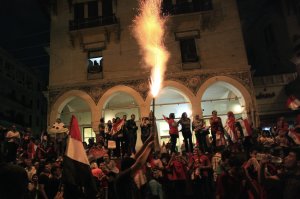
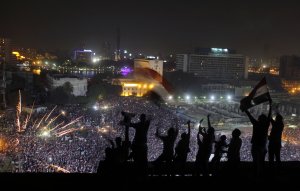
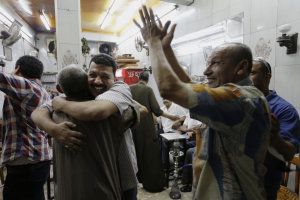
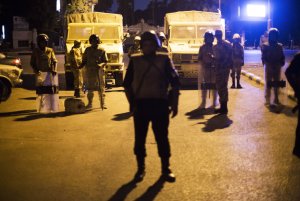
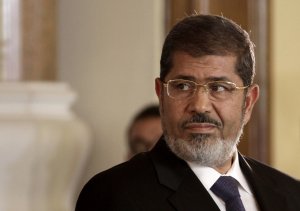
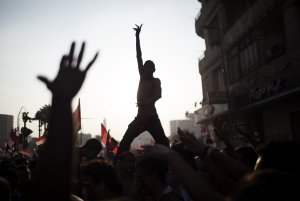
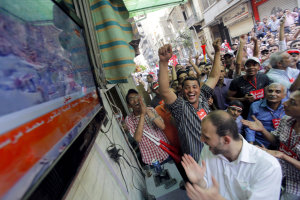
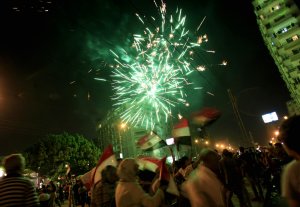
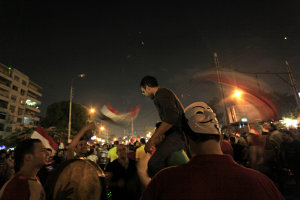
No comments:
Post a Comment
Note: only a member of this blog may post a comment.